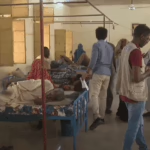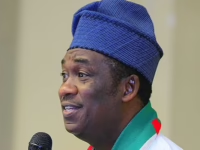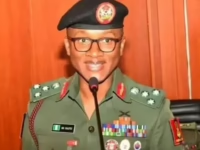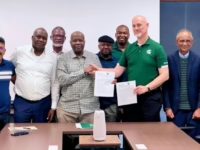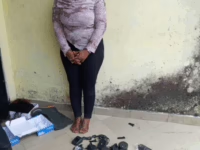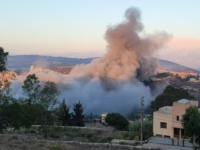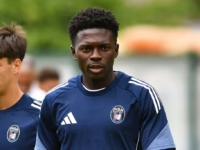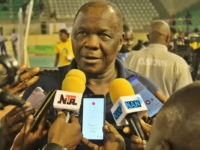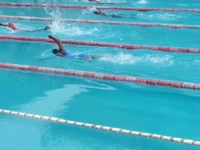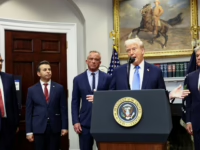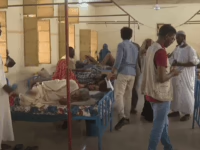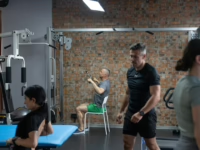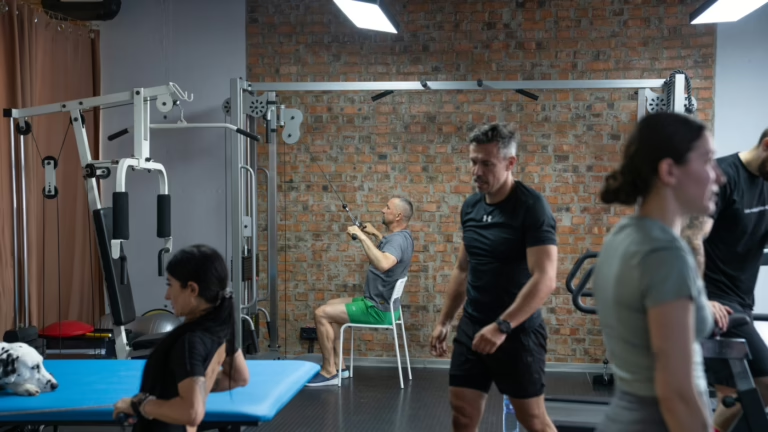Andriy Khrystiuk engages in a CrossFit workout at the Lviv Habilitation Center, a facility where he is healing from the mental scars inflicted by his time in Ukraine’s armed forces.
Claire Harbage/NPR
In the western Ukrainian city of Lviv, a man named Andriy Khrystiuk moves cautiously during a CrossFit session. Though present, he refrains from fully joining the group exercises or socializing during breaks. At 52 years old, Khrystiuk is a war veteran who recently arrived in Lviv to seek treatment for the psychological wounds sustained during combat.
He shares that his nights are haunted by vivid nightmares transporting him back to the battlefield. “I often wake drenched in sweat, jolted awake by memories of fighting. Even in sleep, I’m still there,” he reveals.
Previously serving as a sniper near Kupiansk in northeastern Ukraine, Khrystiuk suffered severe injuries in May 2024 when armor-piercing rounds shattered his right ribs and punctured his lung. Fragments from his ballistic vest’s ceramic plate remain embedded in his chest.
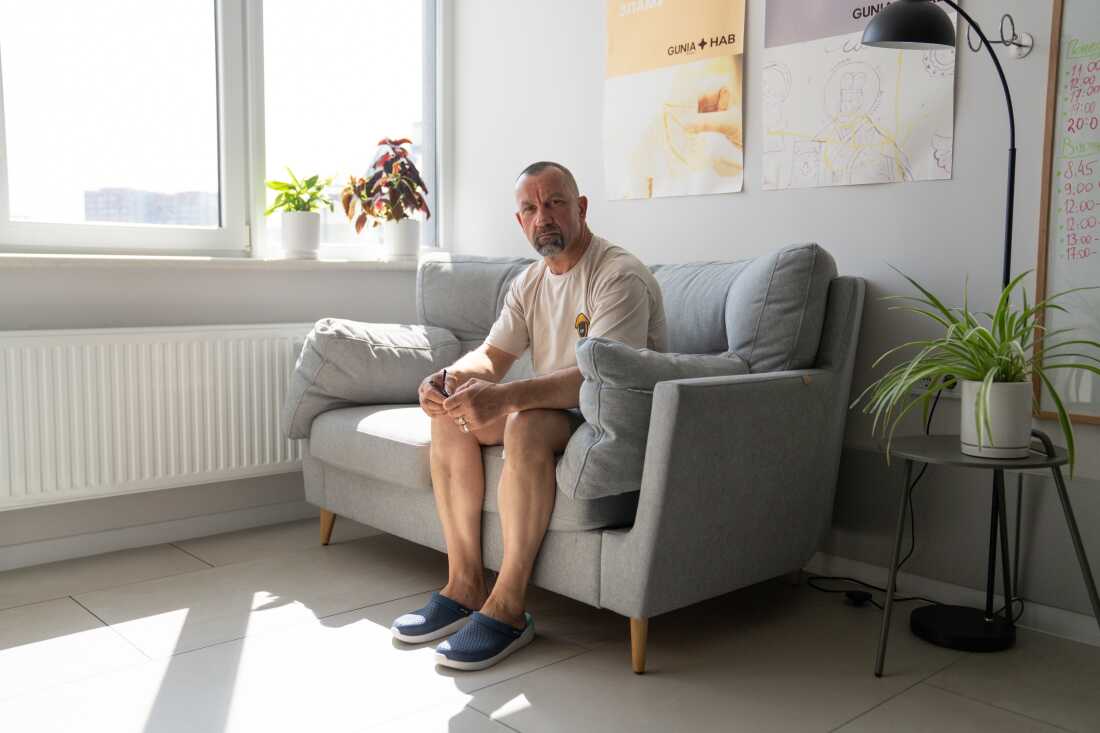
Khrystiuk vividly remembers the blood loss as he staggered through the woods trying to escape danger. With FPV drones patrolling, no medical team could risk extraction. Miraculously, he survived and endured over eight surgeries, each removing damaged tissue.
Claire Harbage/NPR
Following a grueling recovery, Khrystiuk attempted to return home alone. Divorced and grieving the loss of his son in the conflict, he describes his homecoming as a void: “No one is waiting for me there. It’s just emptiness.”
Occasionally, despite the risks, he would deliver supplies back to the front lines near Kupiansk, seeking a sense of purpose. His bond with fellow soldiers felt stronger than any connection to civilian life, leaving him isolated and struggling to adjust.
More than a year after his injury, Khrystiuk now resides at a rehabilitation center in Lviv alongside other veterans. He uses a Ukrainian phrase to describe his mental state: “My roof was leaking,” meaning he was experiencing psychological instability.
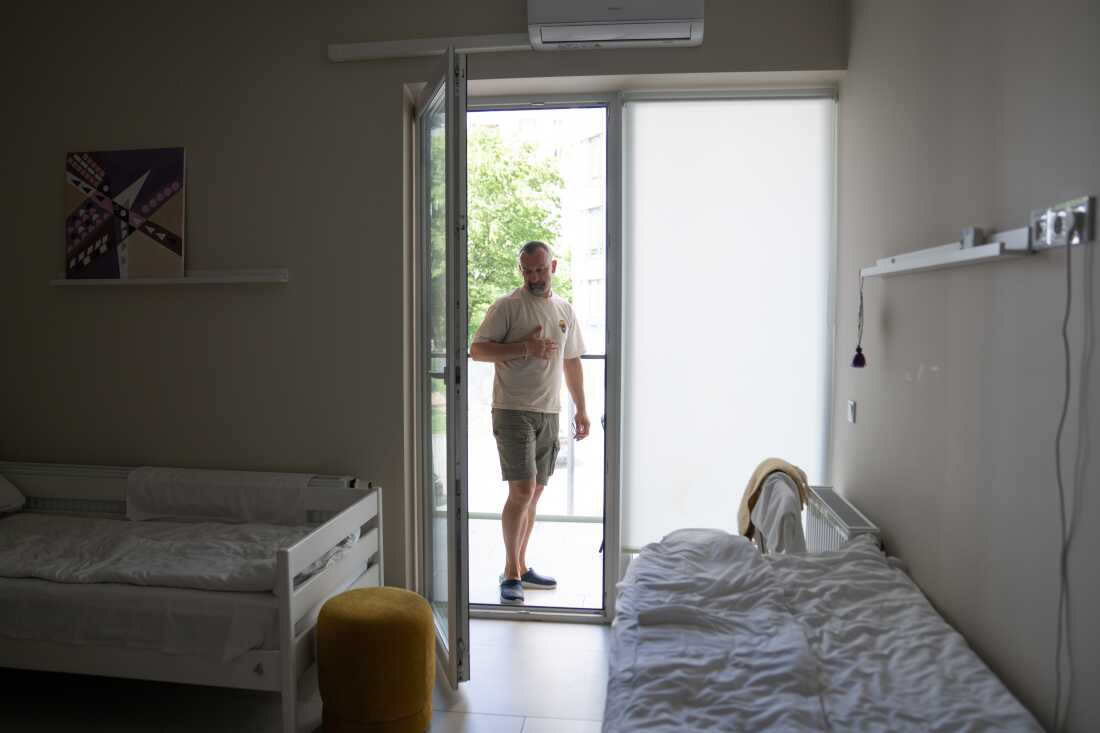
Khrystiuk sometimes places his hand on the right side of his chest, wincing from residual pain. Yet, he insists that overcoming mental wounds has been a far tougher battle than physical healing.
Claire Harbage/NPR
Ukraine’s Ministry of Veterans Affairs reports that over one million veterans are living in the country, many grappling with both physical injuries and psychological trauma from combat. The nation is mobilizing efforts to address their needs comprehensively.
Programs for Veteran Support
Earlier this year, Khrystiuk was invited to participate in the Lviv Habilitation Center, a specialized program designed to assist veterans from across Ukraine who have endured war-related trauma.
This center offers a transitional environment where veterans can acclimate to civilian life after medical rehabilitation. It provides tools to cope with both mental and physical disabilities, helping participants reconcile with their experiences. Khrystiuk describes the center as a place where “you can emotionally unburden yourself.”
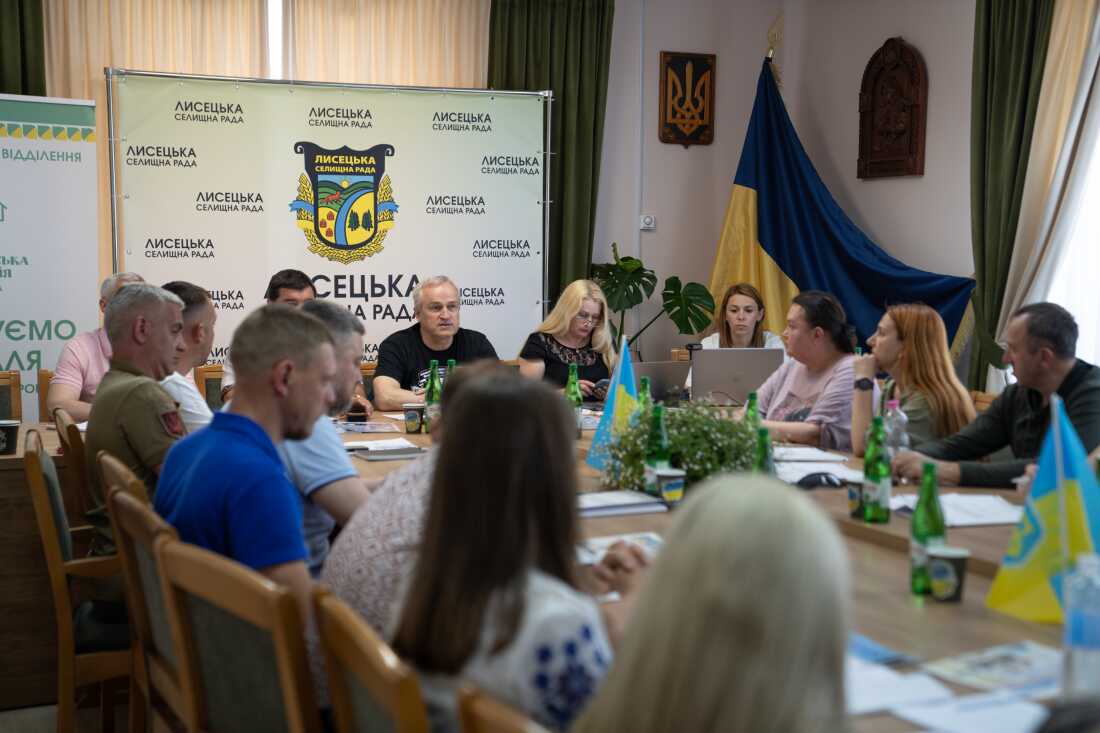
Representatives from various regions convene in Lysets, a quaint village in western Ukraine, to address the complexities surrounding veteran reintegration.
Claire Harbage/NPR
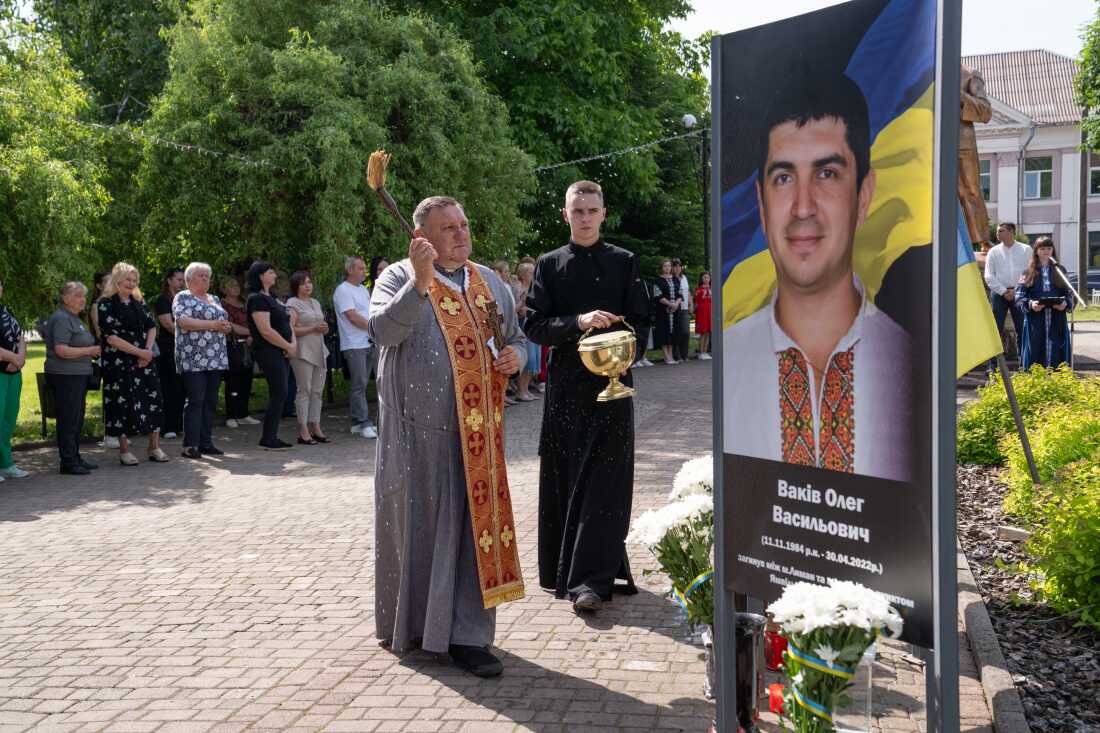
Before starting their meeting on veteran reintegration, local leaders in Lysets hold a remembrance ceremony for those who perished during Russia’s invasion.
Claire Harbage/NPR
The center is equipped with an accessible kitchen tailored for individuals with various disabilities, including wheelchair users and those relying on canes. A fully outfitted gym supports physical rehabilitation, while ongoing mental health counseling and activities such as language classes and city excursions in Lviv foster social reintegration.
Serhiy Titarenko, a 40-year-old veteran who now leads the program, was discharged in 2018 after an injury left him paralyzed from the chest down. He recalls being abandoned outside the hospital in a wheelchair he didn’t know how to operate, without guidance on rebuilding his life.
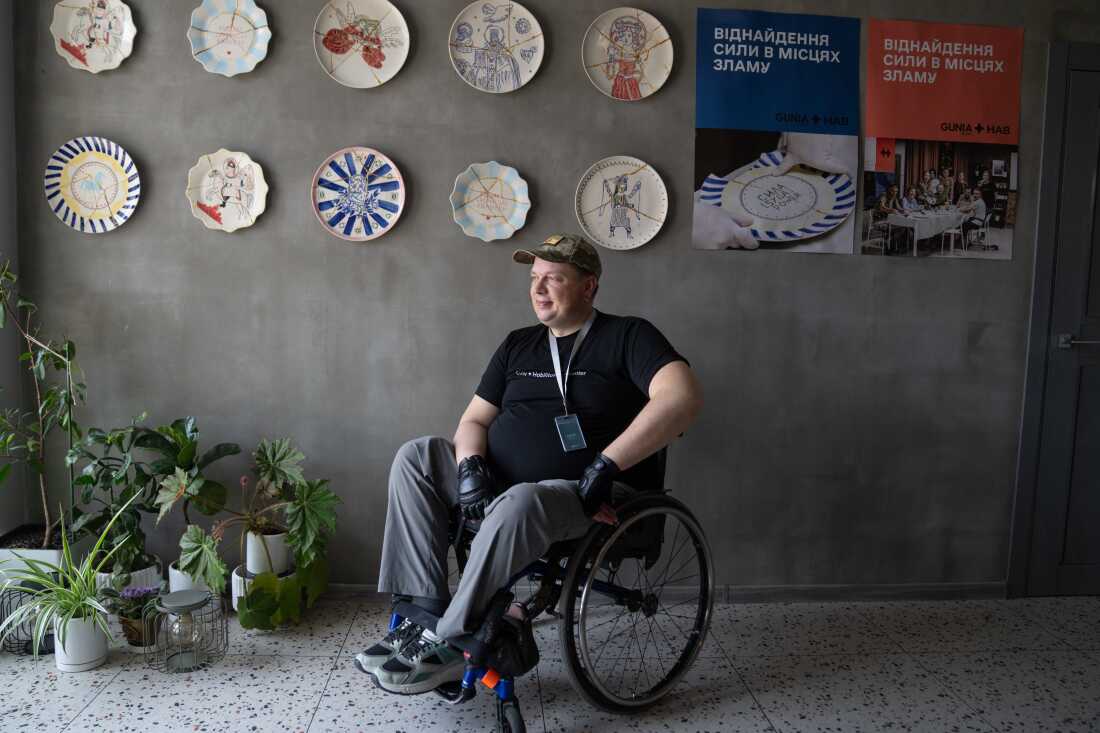
Serhiy Titarenko works at the Lviv Habilitation Center, helping veterans transition to life beyond the military. The center features plates mended with a Japanese method, symbolizing how veterans can become whole again while embracing their scars.
Claire Harbage/NPR
Now a psychologist, Titarenko highlights a troubling increase in veteran suicides, mental health struggles, and addictions such as substance abuse and gambling.
The center accommodates only 20 veterans at a time for three-week stays, but Titarenko is passionate about expanding similar programs nationwide to share his knowledge and support more veterans.
Adjusting to civilian life is not only challenging for veterans but also for the communities around them. When the habilitation center opened, some locals requested that the gym’s large windows be covered to avoid seeing disabled individuals. Titarenko declined and instead invited community members to visit, meet veterans, and foster understanding. He also organizes walks around Lviv to encourage interaction between veterans and civilians. “We welcomed our neighbors to learn how to communicate with us and how to grow together,” he explains.
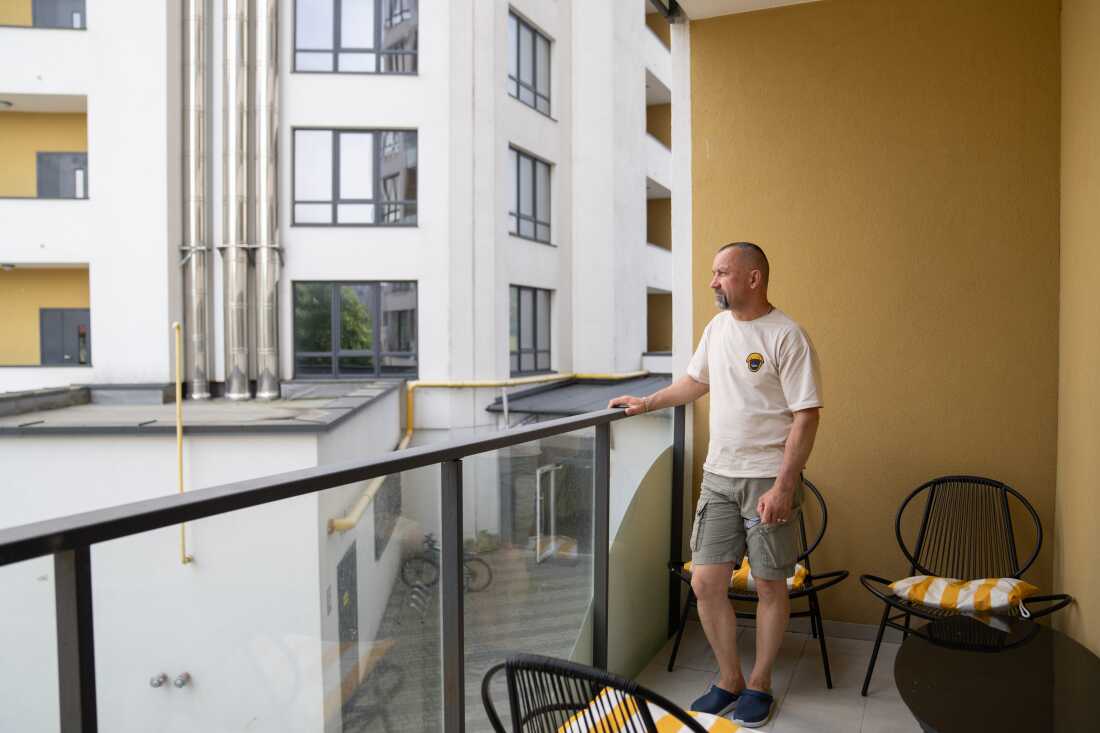
Khrystiuk could have been discharged following his son’s death in Mariupol in 2022 but delayed until January, when he realized the military still required his service despite his wounds and psychological state.
Claire Harbage/NPR
Despite these initiatives, many veterans express to NPR that they feel misunderstood by civilians and hesitant to seek professional help.
Engaging Communities
Yuliia Krat, chief psychologist at East SOS, a Ukrainian NGO focused on veteran reintegration, is addressing this gap through a new training program in the Dnipro region. Targeting community leaders, social workers, and public officials, the program educates those who frequently interact with veterans about the profound impact of war on individuals’ values and behaviors.
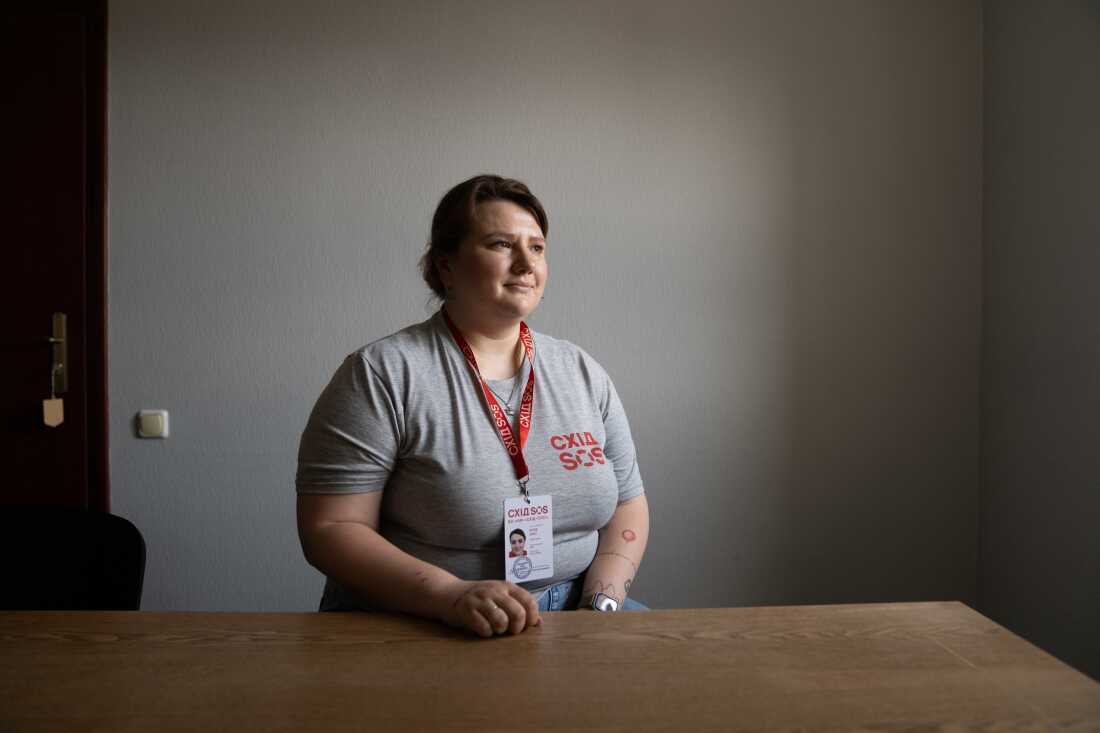
Yuliia Krat leads veteran reintegration initiatives at East SOS, a Ukrainian NGO.
Claire Harbage/NPR
Krat emphasizes that reintegrating millions of veterans is a societal challenge, not just an individual one. “Our society must collectively take responsibility for this issue. We cannot simply ignore it or expect others to handle it,” she asserts.
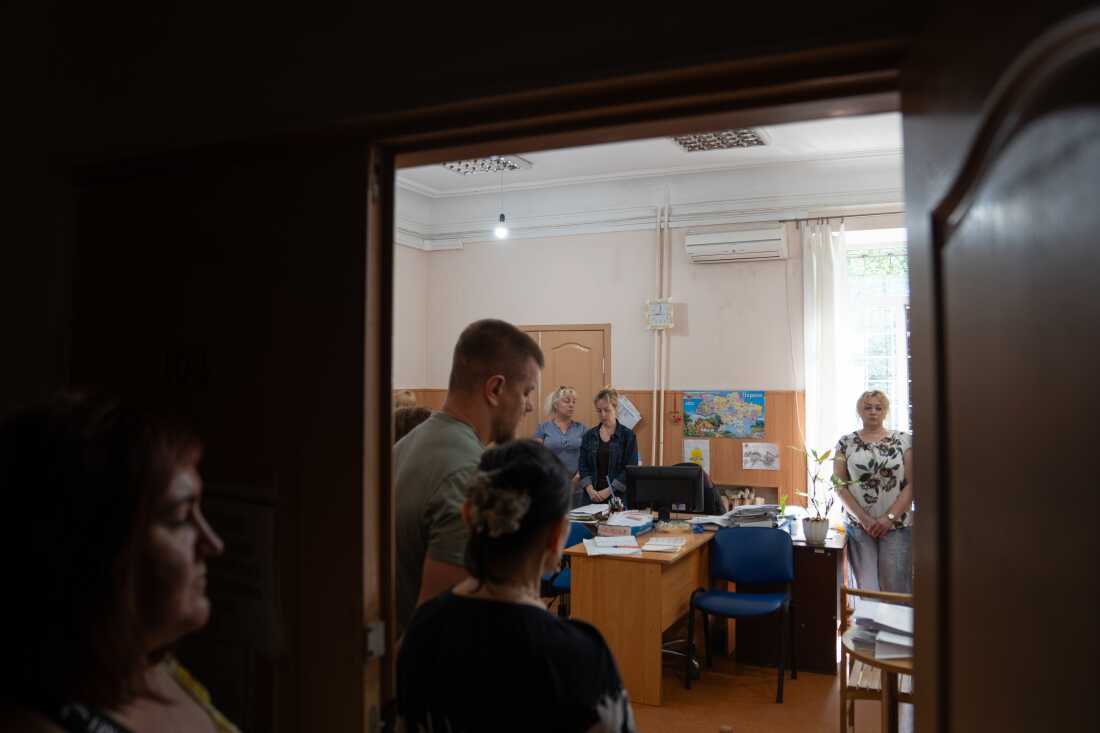
In Samar, a small city in the Dnipro region, locals observe a daily 9 a.m. moment of silence to remember those lost in the conflict.
Claire Harbage/NPR
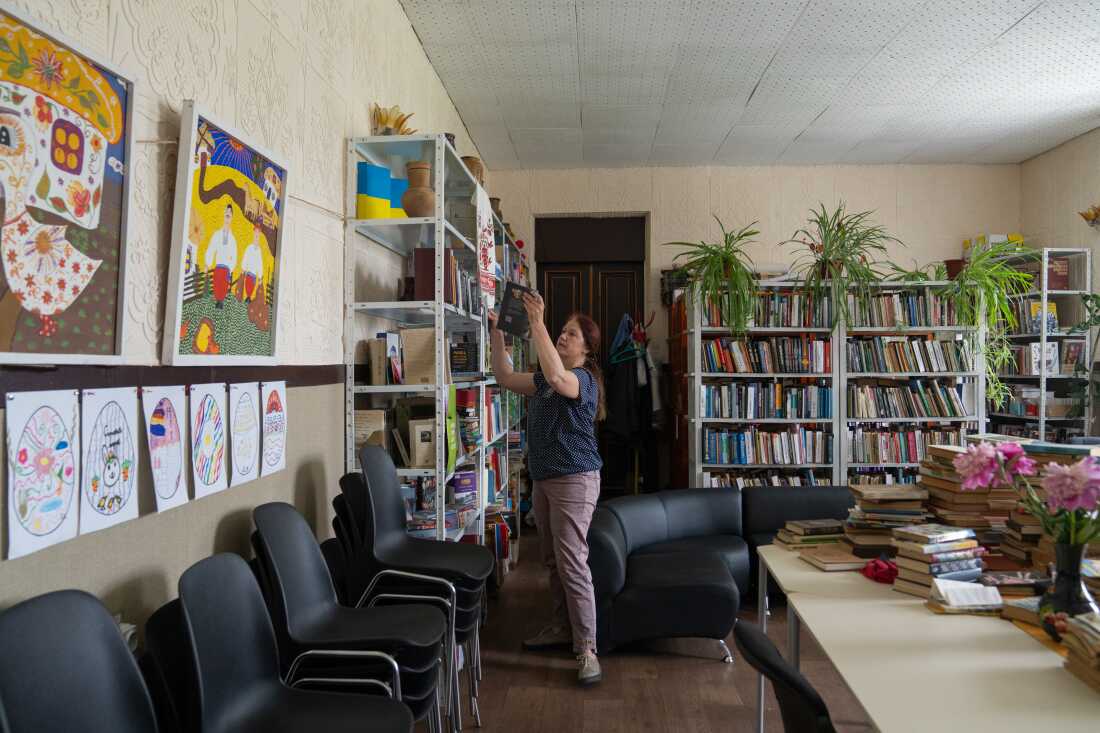
In Hubynykha, a village benefiting from East SOS programs, a librarian curates books to educate locals about the realities faced by veterans.
Claire Harbage/NPR
Community-based support is crucial because many veterans hesitate to seek direct help, often relying on family and friends instead. Krat explains, “Veterans frequently block assistance and refuse to engage with professionals. That’s why we empower those around them with knowledge, so support can be provided even without the veteran’s explicit request.”
Despite the dedication of these programs, the scale of need remains daunting. “I’m unsure if anyone can be fully prepared for this challenge,” Krat admits, though she remains committed to expanding her community training and spreading awareness on veteran support.
One such veteran, Andriy Melnykov, 57, from Samar in the Dnipro region, recounts his difficult transition after discharge last year. Battling depression and daily alcohol use, his first six months were marked by despair. “I was lost in drinking and sleep, unsure of what to do next,” he recalls.
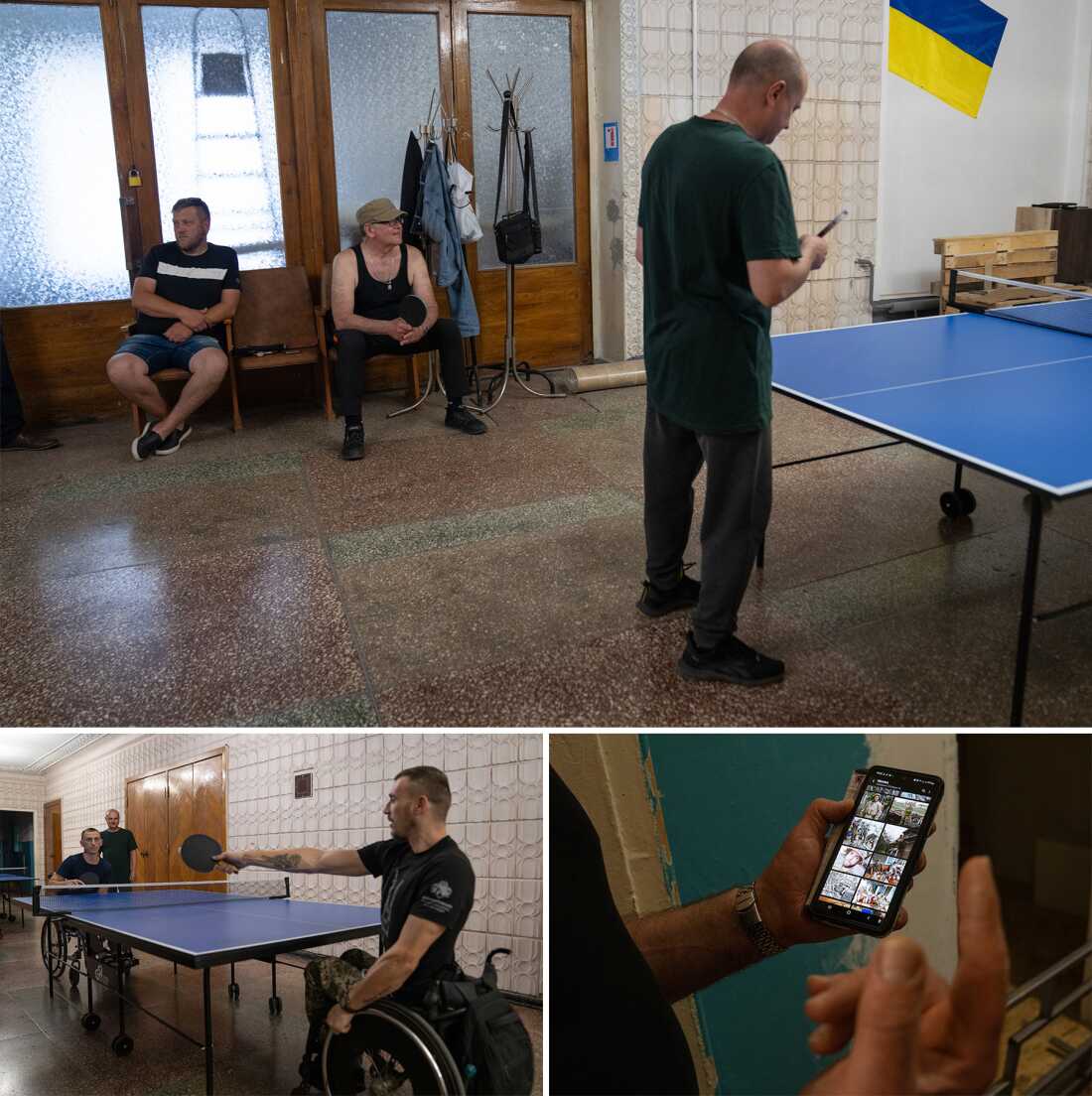
Top: Andriy Melnykov (center) participates in a weekly table tennis meetup with other veterans in Samar. Bottom left: Two disabled veterans play together. Right: Melnykov displays photos from his military days and friends still serving.
Claire Harbage/NPR
His daughter, 15-year-old Arina Melnykov, helped him find his way out of that dark period. Now, they both attend a community center in Samar where veterans gather weekly for table tennis. Melnykov has quit drinking and enjoys biking outings with his daughter.
However, many families lack the knowledge or resources to support veterans facing reintegration challenges, making community education all the more vital.
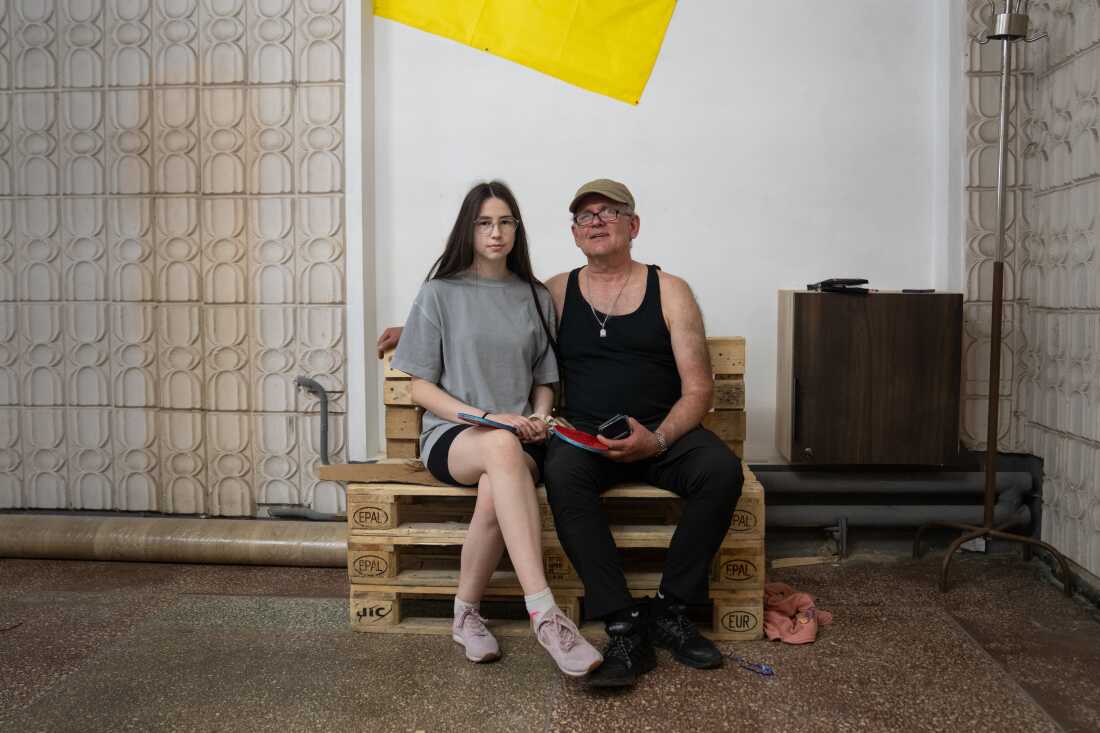
Arina Melnykov and her father Andriy relax together following a table tennis session with fellow veterans.
Claire Harbage/NPR
Krat stresses that because veterans often avoid seeking direct help, empowering their social circles is essential. “Even if we trained ten psychologists per district, many veterans wouldn’t approach them. That’s why we focus on equipping families and communities with the tools to provide support organically,” she explains.
While the path ahead is uncertain, Krat remains hopeful and committed to expanding community-based veteran support programs throughout Ukraine.


